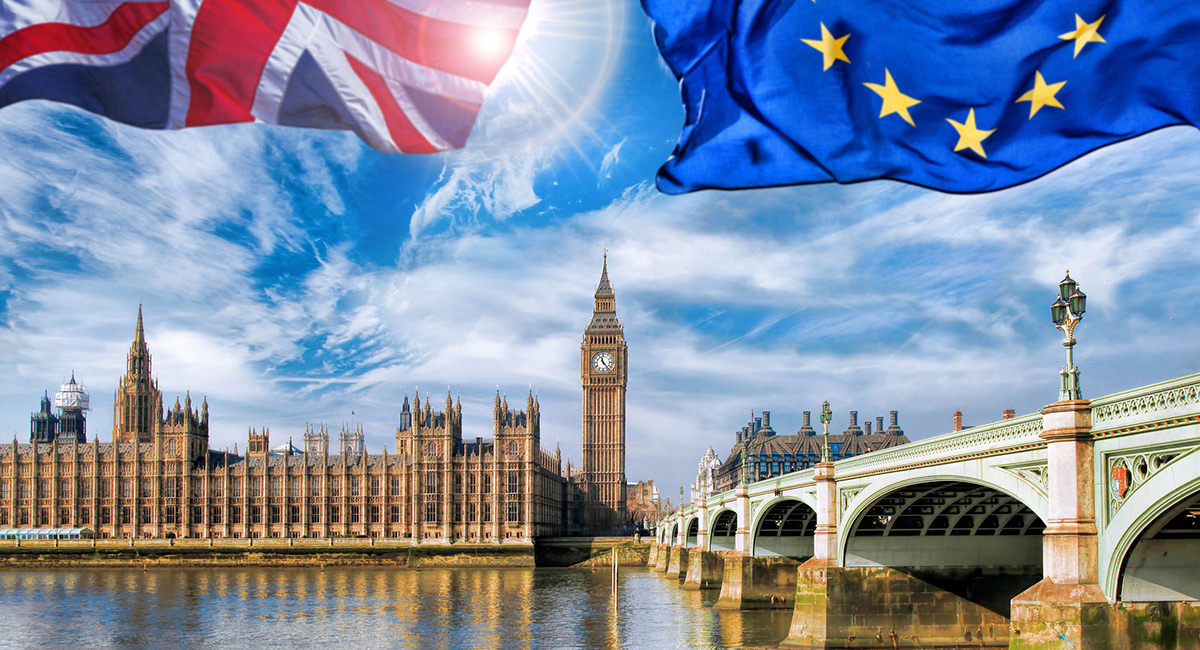This article originally appeared on 1/27/2021 on Fortune.com
In the Shakespearean comedy Much Ado About Nothing, Balthasar, Don Pedro’s employee, sings a song about how unfaithful men are in love affairs: "Men were deceivers ever, / One foot in sea and one on shore, / To one thing constant never.”
It is difficult to find a better way to describe the United Kingdom’s membership in the European Union for half a century and the recent trade agreement that will dictate the relationship now that the Brits are on their own again. The accord is a monument to ambiguity and ambivalence—to be and not to be.
Perhaps the best that can be said is that just as the U.K. was never fully connected with Europe when it was inside the EU, it will not be completely de-Europeanized now that it’s outside again. But its absence will be felt.
The newly ambivalent relationship is implicit in the agreement, since free trade in industrial and commercial matters is maintained, while services—representing 80% of the U.K.’s economy—are excluded. British financial institutions lend almost €1.5 trillion annually to European companies and governments, and finance accounts for half of the U.K.’s services trade surplus.
What’s left outside the agreement is thus enormously important not only to the British but to the rest of Europe as well, since the EU lacks the tradition of flexibility and efficiency, and the global vision, that has characterized London’s financial industry for centuries.
That’s the big picture. But as in most other matters, the devil is in the details, and there the equivocation becomes even more apparent. Although goods will be exempt from tariffs, either party to the agreement will be able to retaliate against the other if it judges that companies in the other jurisdiction are being given a helping hand by government, thereby making them more competitive. Since governments can help companies in many ways, ranging from direct subsidies to reductions in (or simplification of) regulations and red tape, almost anything can serve as a pretext to limit free trade in goods.
After half a century of semi-integration with the rest of Europe, it’s highly unlikely that the U.K. will return to its pre-EU past. The younger British generations, who already are less nationalistic and identify more as European than their elders, don’t want to revert to the old ways.
Europe, for its part, knows that the U.K. is too important to do without, and that the EU’s relationship with the U.S. will continue to depend, at least partly, on the special relationship between America and the U.K.
In theory, if the U.K. were to revive some of the free-market policies of the Margaret Thatcher era, it could prosper despite Brexit. Australia, New Zealand, and Singapore come to mind. But this requires a vision that the British leadership, heavily corroded by populism and nationalism, lacks. Even if the British ruling class had an epiphany, Brexit has canceled its ability to lead Europe away from its decadent, crisis-prone welfare state model. Leading from without is impossible.
The Europeans are having a much harder time than other parts of the world in dealing with the economic effects of the coronavirus pandemic precisely because of the rigid, outdated socioeconomic system they’ve imposed on themselves.
There has always been an ideological struggle within Europe between the liberals (in the European sense of the word), who want the so-called four freedoms of circulation—goods, services, capital, and people—to constitute the essence of the union, and the constructivists, who see the EU as a continent-wide super-government that can impose on all of Europe the tax, fiscal, regulatory, and social welfare policies that many national governments have been inflicting on their people for half a century. The U.K.’s absence from the EU will lessen the strength of liberal ideas in the fight for Europe’s soul.
Few things are more urgent today than championing the values of Western civilization in the world’s liberal democracies, which have been weakened by the dislocations of globalization, mass migration, the Great Recession, and, now, the COVID-19 pandemic. The U.K.’s departure from the EU will not help win that fight within Europe.













